
The second set of compositions from Christopher Fox emulating the Subharchord's sonic architecture through acoustic means, performed by Dominic Lash on double bass, Elisabeth Flunger on bass drum, and Kathryn Williams on bass flute, drawing deep resonance from extended techniques and elemental gestures in a richly textural exploration of dissent, descent, and transformation.
In Stock
Quantity in Basket: None
Log In to use our Wish List
Shipping Weight: 3.00 units
EU & UK Customers:
Discogs.com can handle your VAT payments
So please order through Discogs
Sample The Album:
Christopher Fox-composer
Elisabeth Flunger-bass drum
Dominic Lash-double bass
Kathryn Williams-bass flute
Click an artist name above to see in-stock items for that artist.
UPC: 752156106128
Label: ezz-thetics by Hat Hut Records Ltd
Catalog ID: ezz-thetics 1061
Squidco Product Code: 36131
Format: CD
Condition: New
Released: 2025
Country: Switzerland
Packaging: Cardboard Gatefold
Track 1 recorded at Half-Ton Studios, in Cambridge, UK, on June 25th, 2024, Neil Rogers. / Tracks 2, 6, 8 and 10 at Studio Czapkagasse, in Vienna, Austria, on October 28th, 2024, by Jobina Tinnemans. / Tracks 3, 5, 7 and 9 recorded in the studio of the Akademie Der Kčnste, Berlin, Germany, on November 13th, 14th and 15th, 2023, by Jobina Tinnemans. / Track 4 recorded at Turnpike Studio, on July 19th, 2024, by Larry Goves.
"Recording the Dissenting Voices confirmed the extent of their divergence from The Future That Never Was. Music always has something to do with the sonic architecture of instruments, but it is also about the fantasy with which musicians like Dominic, Elisabeth and Kathryn choose to play."-Christopher Fox
"This album interlocks two cycles of music, Dissenting Voices and The Future That Never Was. I worked on them over the same period of time, from May 2023 until November 2024, and the inspiration for both was a vintage synthesizer, the Subharchord. In my notebook the sketches for the two sets of pieces share the same pages and so here too they are interleaved, but in the process of making the music something happened: each cycle asserted its own identity. This album maps the way in which two different paths can diverge from a shared starting point.
The Future That Never Was consists of four pieces of electronic music, made with sounds generated by the Subharchord. It's an instrument that was developed in the German Democratic Republic (DDR) as a Cold War counter to the electronic music studios of the West. After the death of Stalin there was a liberalisation of cultural policy in the Soviet Union and its European allies and when the Subharchord was launched at the 1965 Leipzig Trade Fair the intention was that it would be mass-manufactured. But the political ground was already shifting again in the Soviet bloc; cultural policy now deemed that avant-garde and electronic music were, after all, 'cacophony'. In the DDR Subharchord production was terminated and today only a handful of instruments survive: two in Berlin, the others in Trondheim and Vienna. The music on this album was made with the Subharchord housed in the Studio for Electroacoustic Music of the Akademie der Künste, Berlin.
The Subharchord is an instrument rich in low frequencies and The Future That Never Was is a response to these sound qualities. The oscillators of the Subharchord offer a sub-harmonic spectrum below a principal tone, producing rich, dense sonorities, and I wanted to release the music that had been built into the instrument, to let the instrument speak for itself. I also wanted to represent the circumstances in which the instrument was developed and each of the four sections of The Future That Never Was takes its title from the name of a place associated with the history of the DDR and the easing or tightening of the state's control over its citizens.
Like The Future That Never Was, the three parts of the Dissenting Voices cycle inhabit low frequencies. But instead of oscillators and an amplifier they make their music by bowing the strings of a double bass (Lead & Line), by finding different ways to vibrate the skin of a bass drum (the four parts of Weather Events) and by blowing breath through a bass flute (Free Diver), Dropping into these sonic depths reminded me that 'descent' sounds the same as 'dissent' and, because dissent usually involves questioning how things are done and proposing alternatives, I decided to ignore the normal expressive uses of these instruments and ask a simpler question: if these instruments spoke for themselves, how would they sound?
In the score for "Lead & Line" diagonal lines indicate the direction of Dominic Lash's left-hand movements along the strings of his double bass and the speed at which his right-hand propels the bow across the strings. The title is a reference to the method that sailors once used to test the depth of the water on which they were sailing, casting a lead-weighted line over the side of their ship. Weather Events consists of four texts that describe different ways to create resonances within the body of the bass drum: in 'Waves' Elisabeth Flunger plays a continuous drum roll, tracing the shape of a sine wave across the drumhead; in 'Rolling Thunder' the drum is carefully tipped back and forth so that a steel ball rolls across the skin; in 'Autumn Gardening' we hear leaves being blown about with electric hand fans; and in 'Reservoir' Elisabeth pours different granular substances (two grades of sand, millet and cat litter) into the shapes of lakes traced on sheets of material that are laid across the drumhead. The score of Free Diver consists of a series of 44 grids, each giving one or more bass flute fingerings, each headed with yet more verbal cues: the first is 'restless', the last 'exhausted'. In 2017 Kathryn Williams began a project that she calls Coming Up for Air, inviting composers to make pieces that she can play with a single breath, and I am indebted to her for allowing me to add these extra breaths.
Recording the Dissenting Voices confirmed the extent of their divergence from The Future That Never Was. Music always has something to do with the sonic architecture of instruments, but it is also about the fantasy with which musicians like Dominic, Elisabeth and Kathryn choose to play."-Christopher Fox, December 2024
Artist Biographies
• Show Bio for Christopher Fox "Christopher Fox (born 1955 in York) is an English composer. He studied at the universities of Liverpool, Southampton and York, where his teachers included Hugh Wood and Jonathan Harvey. He received a PhD in composition from the University of York in 1984. From 1984 to 1994 he was a member of the composition staff at the Darmstadt New Music Summer School. He is currently Professor in Music at Brunel University, a post he took up in 2006. His music is widely performed, broadcast and recorded. He is also a prolific writer on music. In addition to concert works, Fox has collaborated with artists on gallery works, and with the poet Ian Duhig on a "musical box". An important aspect of Fox's music is its stylistic breadth-whilst his principal considerations may seem to be with systems music and adopting a systematic approach, his music also serves a political function, is deeply rooted in the post-war Darmstadt traditions of applying psychological and intellectual models to the structure and content of music and at the same time exists in a world of diverse musical attitudes, including references to the popular arts, to historical music and to cross-cultural music. The stylistic range of his works is very aurally apparent and includes complex microtonal chamber works, large-scale modernist ensemble pieces, tape cut-up collages and minimalistic pieces for guitars and saxophones. His writings on music have also been published widely, in the journals Contact (of which he was an editor), Contemporary Music Review, Musical Times and Tempo, and deal principally with new music, in particular experimental, minimalist and complex tendencies in American and European music. He was co-editor of Von Kranichstein zur Gegenwart (1996, DACO Verlag, Stuttgart), a history of 50 years of the Darmstadt Ferienkurse, and of Uncommon Ground: The Music of Michael Finnissy (1998, Ashgate Press, Aldershot)." ^ Hide Bio for Christopher Fox • Show Bio for Elisabeth Flunger "Elisabeth Flunger, born in Bolzano (Italy) lives in Vienna and is a percussionist, performance artist, sound artist and composer. She studied musicology and ethnology at the University of Vienna and classical percussion and composition at the University of Music and Performing Arts in Vienna. From 2005 to 2016 Elisabeth Flunger lived in Luxembourg. As a percussionist for contemporary music she has worked as a soloist and with ensembles such as Klangforum Wien, die reihe, Ensemble des 20. Jahrhunderts, Ensemble Kontrapunkte, Ensemble OnLine, Ensemble Lucilin. 1987-91 duo with pianist Johannes Marian. Improvisation, indeterminate music, graphic scores. 1987-90 les guetteurs de sons percussion duo in collaboration with Lukas Schiske, occasionally also as a quartet with Martin Breinschmid and Eggert Pálsson. 1991-94 Chroma duo with Hannes Löschel, compositions for piano and percussion, improvisation, performance. 1994-98 duo with singer Margarete Jungen. After the birth of her daughter Ada, she increasingly concentrated on improvised music and has since played with numerous musicians, dancers and writers throughout Europe, e.g. with Sylvia Bruckner, Karlheinz Essl, Hannes Löschel, Jorge Sanchez-Chiong, Elliott Sharp, Kazuhisa Uchihashi, Elisabeth Harnik, Soizic Lebrat, Ute Wassermann, Susanna Gartmayer, Thomas Berghammer and many others. Long-term collaborations connect her with Inge Kaindlstorfer and David Ender (luxflux), Cordula Bösze, Ute Völker, Stefan Scheib and Katharina Bihler (The Green Noise, The Big Noise), Chris Janka and Edgar Friedl (Trio bimm or BAM), Tomás Tello (Duo ET), Lee Patterson, Emmanuelle Pellegrini and Emilie Borgo (Croquer les fougères). With the dance and music collective Damen-Improvisation & HerrenBIGbäng she realized performances in theatres and in public spaces. In collaboration with LUCILIN 2008-2010 in Luxembourg she organized the ear studio concerts for improvised and experimental music. From 2011 to 2015 she hosted the regular improviser's session and soup in her house in Luxembourg. Elisabeth Flunger also works as a musician, composer and performer in theatre and dance productions, at Burgtheater, Akademietheater, and Volkstheater in Vienna, with Rose Breuss, Tanz*Hotel, DamenImprovisation & HerrenBIGbäng, LuxFlux, and the Compagnie Veronika Riz. Her most recent installations are the collective video installation The Green Noise, the Tinnitus Scenes, 12 miniatures with objects and mini loudspeakers, and the musical marble run, which she keeps setting up in different versions and places. In the context of music and art mediation, she holds lectures and workshops on improvisation and composition for children, amateurs and professional musicians, among others, as part of the Klangnetze in Vienna, at the Vienna Künstlerhaus, at the Moers Jazz Festival and with the Orchestre Philharmonique du Luxembourg. In her (non-scientific) humorous lecture performances, she uses her music to examine how language and images, expectations and ideas manipulate the perception of reality (Sound and Appearance, Ceremony, Meeting). Elisabeth Flunger's favourite instrument is a collection of trash metal objects, used in concerts, installations and performances. For this instrument she created a series of solo pieces and developed appropriate playing techniques, not using traditional percussion techniques, but rather working the objects by physical and spatial manipulation: pile up, crash down, arrange, put, move, push, throw, pull, swing, rock, shake ... In the chaos of the disordered material, movement and repetition generate figures and patterns similar to music. Music becomes a game where natural principles like chaos, random, gravity and resistance play an important role producing surprise and suspense. They generate a situation whose destination is unforeseeable, a project opposed to the ordinary (music and life) concept of sureness, control and efficiency." ^ Hide Bio for Elisabeth Flunger • Show Bio for Dominic Lash "Born Cambridge, England, in January 1980; played bass guitar since 1994; studied with Hugh Boyd and Pascha Milner and at Basstech (London) with Rob Burns, Terry Gregory and others. Played double bass since 2001; basically self taught, with grateful thanks to Simon H. Fell. First class BA in English Literature from Oxford University (2002). Received MA Composition from Oxford Brookes University in 2003, having studied with Paul Whitty, Ray Lee and others. Received PhD from Brunel University in 2010, having studied the work of Derek Bailey, Helmut Lachenmann and JH Prynne and been supervised by Richard Barrett and John Croft." ^ Hide Bio for Dominic Lash • Show Bio for Kathryn Williams "Kathryn Williams is a flautist who performs solo recitals, chamber music, and with orchestras with a particular interest in new and experimental music. Recent performances include a Stockhausen masterclass with Kathinka Pasveer at Theater Basel, solo and chamber music performances with Ensemble Linea Academy at Cité de la musique et la danse Strasbourg, and a concerto with Manchester Camerata. She has performed with various orchestras including the BBC Philharmonic, The Hallé, Royal Liverpool Philharmonic, and Sinfonia Cymru and plays regularly with new music group The House of Bedlam. Kathryn's current project, Coming Up for Air, has been selected for YCAT's Sounding Board: Project Mentoring. As a music educator Kathryn specialises in experimental performance practice and early-years education. Recently this has included guest lecturing at the Royal Northern College of Music, contributing to courses with Aldeburgh Young Musicians, delivering performances and workshops for Live Music Now, and long-term residencies at Alder Hey Children's Hospital, Manchester Museum and in a central Manchester nursery school. Kathryn earned a BMus, MMus, and International Artist Diploma from the Royal Northern College of Music with teachers Peter Lloyd, Richard Davis, Katherine Baker, Stephen Preston, Karin de Fleyt and others. Prizes include RNCM Bach Prize, RNCM Concerto Competition (on two occasions), British Flute Society Young Artist Competition, and National Foundation for Arts Award (USA)." ^ Hide Bio for Kathryn Williams
5/14/2025
Have a better biography or biography source? Please Contact Us so that we can update this biography.
5/14/2025
Have a better biography or biography source? Please Contact Us so that we can update this biography.
5/14/2025
Have a better biography or biography source? Please Contact Us so that we can update this biography.
5/14/2025
Have a better biography or biography source? Please Contact Us so that we can update this biography.
Track Listing:
1. Lead And Line 07:24
2. Weather Events: Waves 03:55
3. Helsinki (The Future That Never Was) 13:12
4. Free Diver 12:44
5. Bernauer Strasse (The Future That Never Was) 07:37
6. Weather Events: Rolling Thunder 02:32
7. Ost-West-Achse (The Future That Never Was) 04:16
8. Weather Events: Autumn Gardening 02:27
9. Bornholmer Strasse (The Future That Never Was) 15:02
10. Weather Events: Reservoir 02:37
Hat Art
Compositional Forms
Electro-Acoustic
London & UK Improv & Related Scenes
Trio Recordings
New in Compositional Music
Recent Releases and Best Sellers
Search for other titles on the label:
ezz-thetics by Hat Hut Records Ltd.


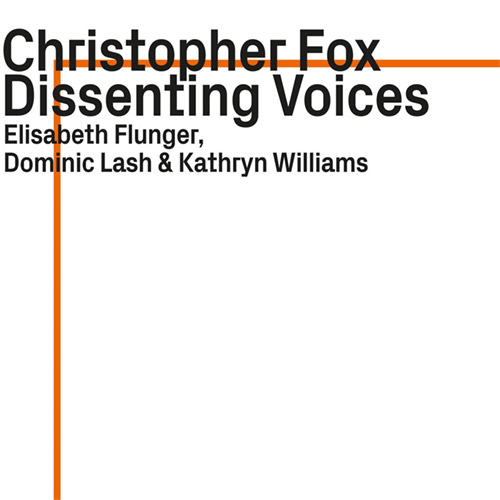

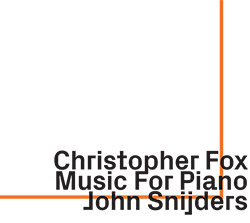
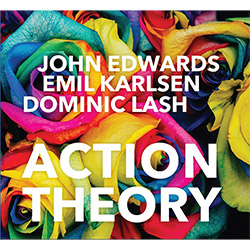

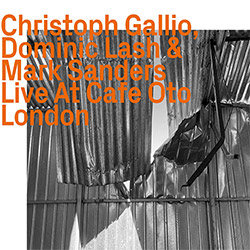
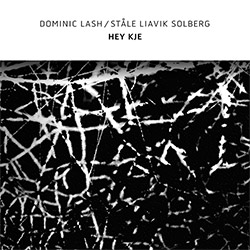
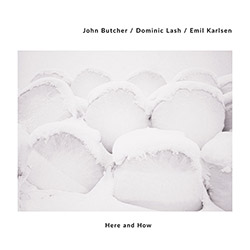
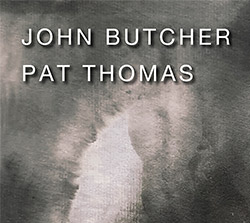
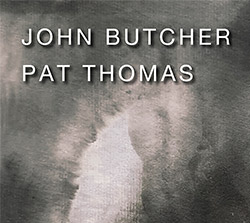
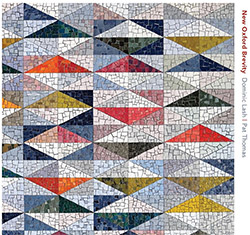
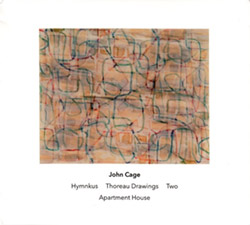
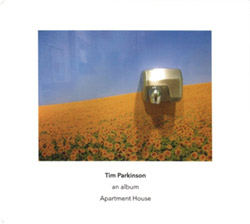
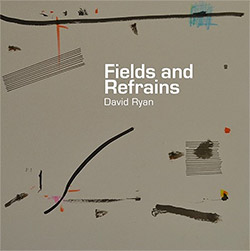

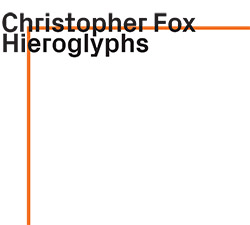
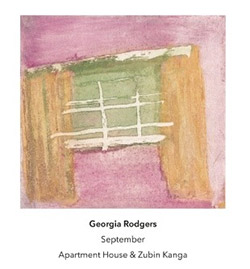




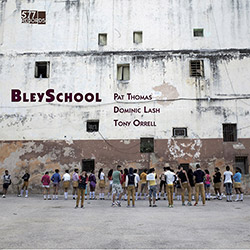
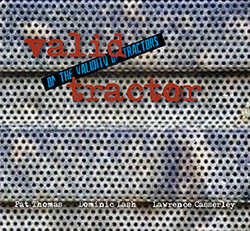





![Sorry For Laughing (G. Whitlow / M. Bates / Dave-Id / E. Ka-Spel): Rain Flowers [2 CDS]](https://www.teuthida.com/productImages/misc4/35985.jpg)

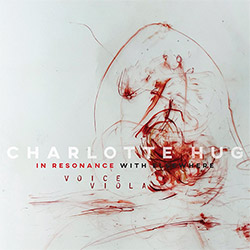

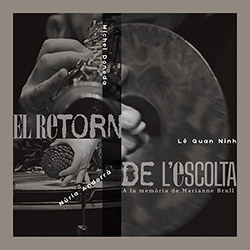

![Von Schlippenbach, Alexander / Barry Altschul Quartet w/ Joe Fonda & Rudi Mahal: Free Flow [2 CDs]](https://www.teuthida.com/productImages/misc4/36101.jpg)
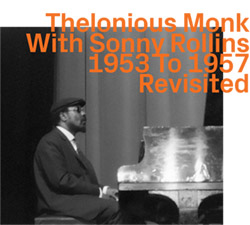
![+Dog+: The Family Music Book Vol. 5 [2 CDs]](https://www.teuthida.com/productImages/misc4/35897.jpg)

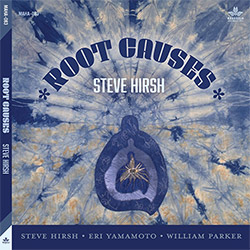

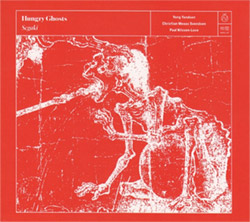
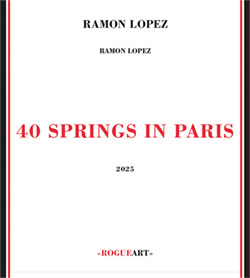
![Mazurek, Rob: Flitting Splits Reverb Adage [BOOK]](https://www.teuthida.com/productImages/misc4/35984.jpg)
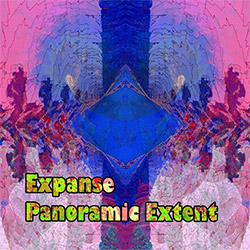

![Sinton, Josh: Couloir & Book Of Practitioners Vol. 2 Book "W" [2 CDs]](https://www.teuthida.com/productImages/misc4/36242.jpg)
![Kuvveti, Deli : Kuslar Soyledi [CASSETTE w/ DOWNLOAD]](https://www.teuthida.com/productImages/misc4/36107.jpg)
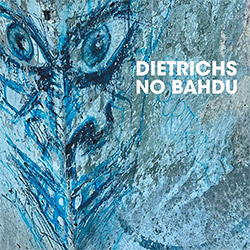
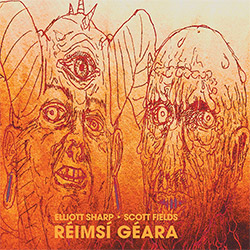

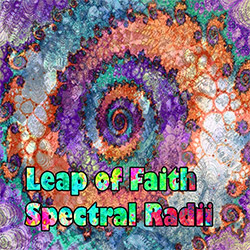
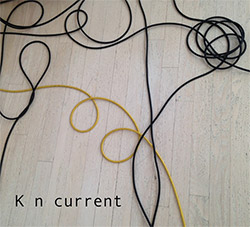

![Palestine, Charlemagne / Seppe Gebruers: Beyondddddd The Notessssss [VINYL]](https://www.teuthida.com/productImages/misc4/36206.jpg)
![Palestine, Charlemagne / Seppe Gebruers: Beyondddddd The Notessssss [NEON GREEN VINYL]](https://www.teuthida.com/productImages/misc4/36207.jpg)
![Eskelin, Ellery Trio New York: About (or On), First Visit [2 CDs]](https://www.teuthida.com/productImages/misc4/36056.jpg)
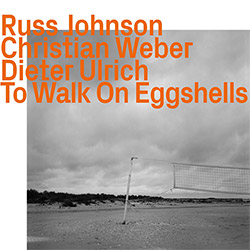
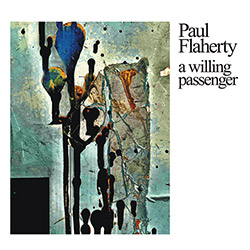
![Lehman, Steve Trio + Mark Turner: The Music of Anthony Braxton [VINYL]](https://www.teuthida.com/productImages/misc4/35641.jpg)
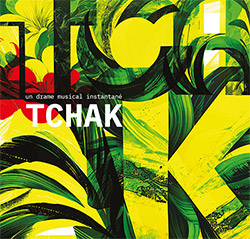
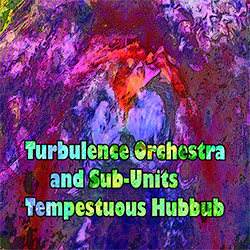
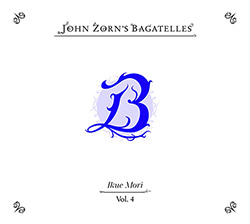
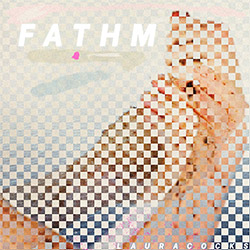
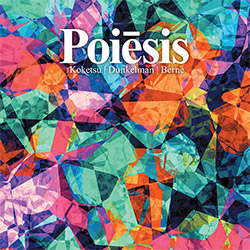



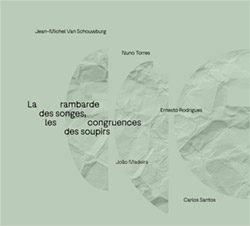


![Segel, Jonathan / Chaos Butterfly: Hall of Mirrors [2 CDs]](https://www.teuthida.com/productImages/misc4/36026.jpg)



![Taylor, Cecil Quintet (w/ John Coltrane / Kenny Dorham / Chuck Israels / Louis Hayes): Stereo Drive + 2 Bonus Tracks (limited Edition) [VINYL]](https://www.teuthida.com/productImages/misc4/35811.jpg)


![Nakayama, Tetsuya: Edo Wan [CASSETTE w/ DOWNLOAD]](https://www.teuthida.com/productImages/misc4/36105.jpg)





![Yiyuan, Liang / Li Daiguo: Sonic Talismans [VINYL]](https://www.teuthida.com/productImages/misc4/35957.jpg)
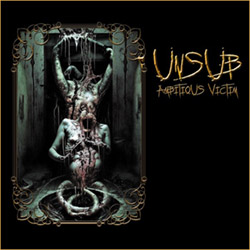
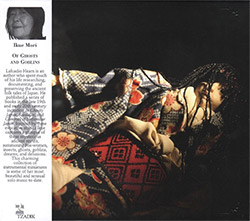

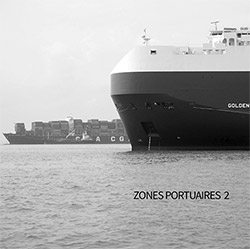

![111 (Michelle / Villamil): Live at Opus 40 [CASSETTE]](https://www.teuthida.com/productImages/misc4/35986.jpg)
![del Pino, Francisco / Charlotte Mundy: The Sea [CASSETTE]](https://www.teuthida.com/productImages/misc4/35987.jpg)
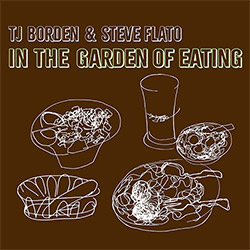

![Niblock, Phill / Anna Clementi / Thomas Stern: Zound Delta 2 [VINYL]](https://www.teuthida.com/productImages/misc4/34623.jpg)
![Myers, David Lee : Tin Drop Tear [BOOK w/ DOWNLOAD]](https://www.teuthida.com/productImages/misc4/36030.jpg)

![Ackerley / Prymek / Turner: All Hope With Sleeping Minds [CASSETTE]](https://www.teuthida.com/productImages/misc4/35950.jpg)








![Laubrock, Ingrid: Purposing The Air [2 CDs]](https://www.teuthida.com/productImages/misc4/35639.jpg)

![Yoko, Ono / The Great Learning Orchestra: Selected Recordings From Grapefruit [2 CDs]](https://www.teuthida.com/productImages/misc4/35841.jpg)








![Zorn, John / JACK Quartet: The Complete String Quartets [2 CDs]](https://www.teuthida.com/productImages/misc4/35609.jpg)

![Lonsdale, Eden: Dawnings [2 CDs]](https://www.teuthida.com/productImages/misc4/35480.jpg)







![Sanna, Claudio: Compositori Sardi Contemporanei II [2 CDs]](https://www.teuthida.com/productImages/misc4/35317.jpg)

![Rolando, Tommaso / Andy Moor : Biscotti [CASSETTE w/ DOWNLOADS]](https://www.teuthida.com/productImages/misc4/36106.jpg)


![Electric Bird Noise / Derek Roddy: 8-10-22 [CD EP]](https://www.teuthida.com/productImages/misc4/35970.jpg)








![Elephant9 : Mythical River [VINYL]](https://www.teuthida.com/productImages/misc4/34624.jpg)



![Elephant9 with Terje Rypdal: Catching Fire [VINYL 2 LPs]](https://www.teuthida.com/productImages/misc4/35355.jpg)
![Deerlady (Obomsawin, Mali / Magdalena Abrego): Greatest Hits [VINYL]](https://www.teuthida.com/productImages/misc4/34876.jpg)







![Surplus 1980: Illusion of Consistency [CD]](https://www.teuthida.com/productImages/misc4/35069.jpg)
![Staiano, Moe: Away Towards the Light [VINYL + DOWNLOAD]](https://www.teuthida.com/productImages/misc4/35037.jpg)
![Coley, Byron: Dating Tips for Touring Bands [VINYL]](https://www.teuthida.com/productImages/misc4/17906.jpg)

![Lost Kisses: My Life is Sad & Funny [DVD]](https://www.teuthida.com/productImages/misc4/lostKissesDVD.jpg)